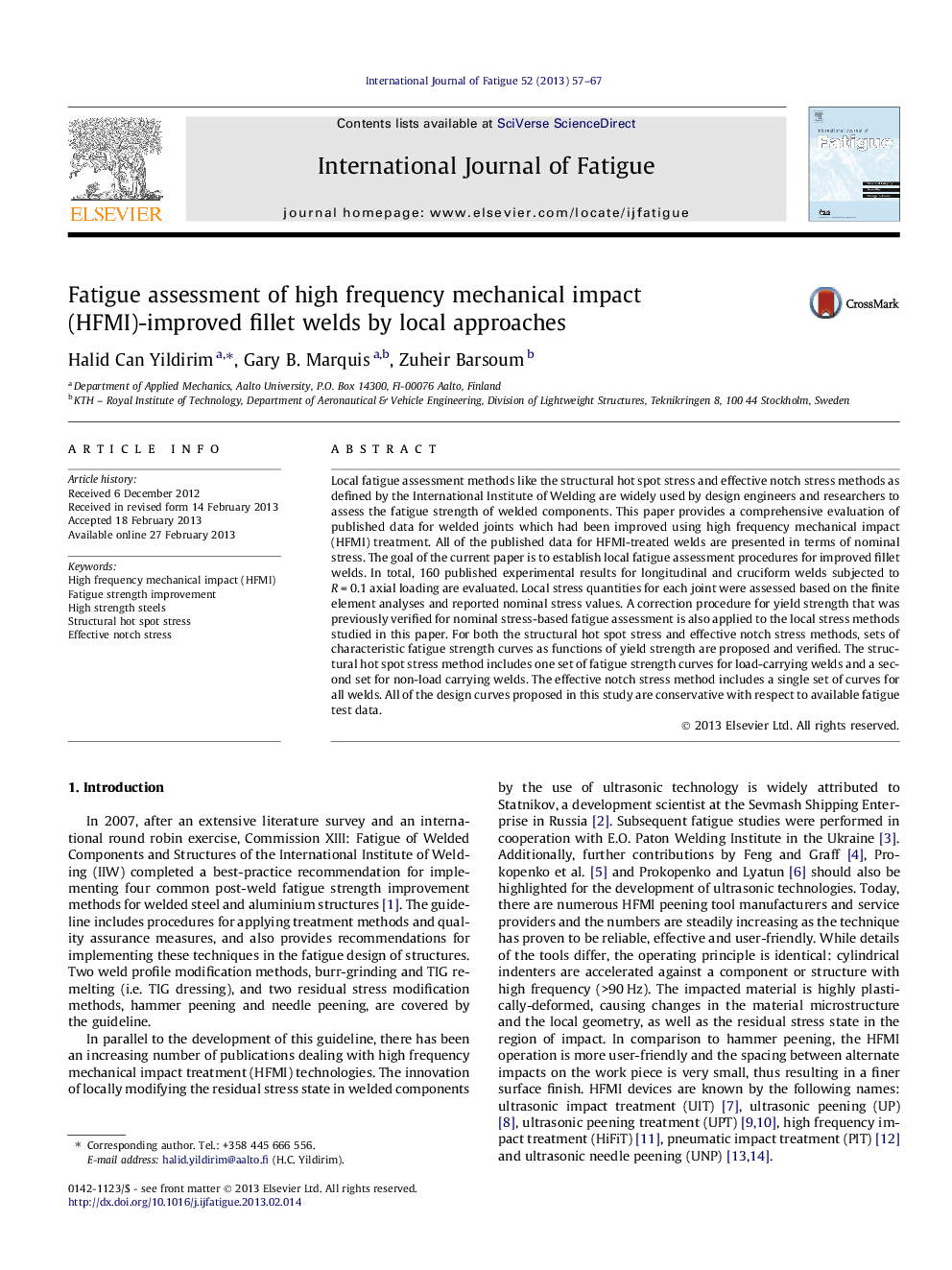| Article ID | Journal | Published Year | Pages | File Type |
|---|---|---|---|---|
| 777690 | International Journal of Fatigue | 2013 | 11 Pages |
Local fatigue assessment methods like the structural hot spot stress and effective notch stress methods as defined by the International Institute of Welding are widely used by design engineers and researchers to assess the fatigue strength of welded components. This paper provides a comprehensive evaluation of published data for welded joints which had been improved using high frequency mechanical impact (HFMI) treatment. All of the published data for HFMI-treated welds are presented in terms of nominal stress. The goal of the current paper is to establish local fatigue assessment procedures for improved fillet welds. In total, 160 published experimental results for longitudinal and cruciform welds subjected to R = 0.1 axial loading are evaluated. Local stress quantities for each joint were assessed based on the finite element analyses and reported nominal stress values. A correction procedure for yield strength that was previously verified for nominal stress-based fatigue assessment is also applied to the local stress methods studied in this paper. For both the structural hot spot stress and effective notch stress methods, sets of characteristic fatigue strength curves as functions of yield strength are proposed and verified. The structural hot spot stress method includes one set of fatigue strength curves for load-carrying welds and a second set for non-load carrying welds. The effective notch stress method includes a single set of curves for all welds. All of the design curves proposed in this study are conservative with respect to available fatigue test data.
► 160 experimental results subject to axial loading at R = 0.1 have been reviewed. ► Local fatigue design approach procedures for HFMI improved fillet welds are given. ► Previously developed fy correction is implemented for local fatigue assessments. ► The observed scatters in the data are reduced with the fy correction method. ► The proposed FAT classes are conservative with respect to available data.
